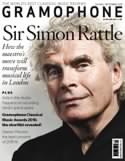Texte paru dans: / Appeared in: |
|
|
Outil de traduction (Très approximatif) |
|
|
Reviewer: David Vickers
This programme was inspired by viol player Caroline Howald’s admiration for ‘Mein Freund ist mein und ich bin sein’ by Johann Christoph Bach (the cousin of Johann Sebastian’s father). The conductor’s note offers platitudes about ‘beauty’, the ‘expression of life in all its forms’ and ecstatic yearning, and secularises religious rapture into what she likes to call ‘the energy of Eros’ (hence the cover image of Bernini’s Ecstasy of St Theresa), but not one word of explanation that this nine-minute chaconne is extracted from the wedding dialogue Mein Freundin, du bist schön – it represents the enraptured ‘beloved’ walking towards a garden, anticipating what might happen there when she meets her lover. Howald divides the solo voice part between two sopranos, ‘to show both sides of amorous passion: the lover full of immense desire but doubting…and the lover as passionately in love but fully delighted and made luminous with desire’. A revolving door of basso continuo instrumentation, extensive ornamentation and the use of tremolo are designed to ‘express, underline or reinforce these two sides’. The obbligato violin part is played rapturously by Chiara Banchini, and Michiko Takahashi and Cécile Granger sing attractively, but when they briefly join together in unison the effect is jarringly unnatural. The distractions and imperfections have their antidote in several superb, accurate and complete recordings.
Three short pieces for two interweaving voices and detailed continuo realisations from Schein’s Opella nova (published 1618) represent ‘distress and beseeching’, whereas the new work Zu Gott sollst du nicht schreien, commissioned from Jean-Dominique Krynen, applies an atonal language to rhetorical figurations steeped in the Baroque idiom. The conceptual experiment to use religious music to convey ‘earthly eroticism’ and ‘elevated sexuality’ culminates incongruously with the lament composed by Buxtehude for his own father’s funeral in 1674 (Klag-Lied); its instrumental parts are ‘diversified’ (ie tinkered with). The self-conscious interventionism means that I’m not entirely sure who this album is supposed to gratify beyond the creative instincts of the performers themselves.
|
|
|
|
|
|
Cliquez l'un ou l'autre
bouton pour découvrir bien d'autres critiques de CD |
|

/3760213650245.jpg)


